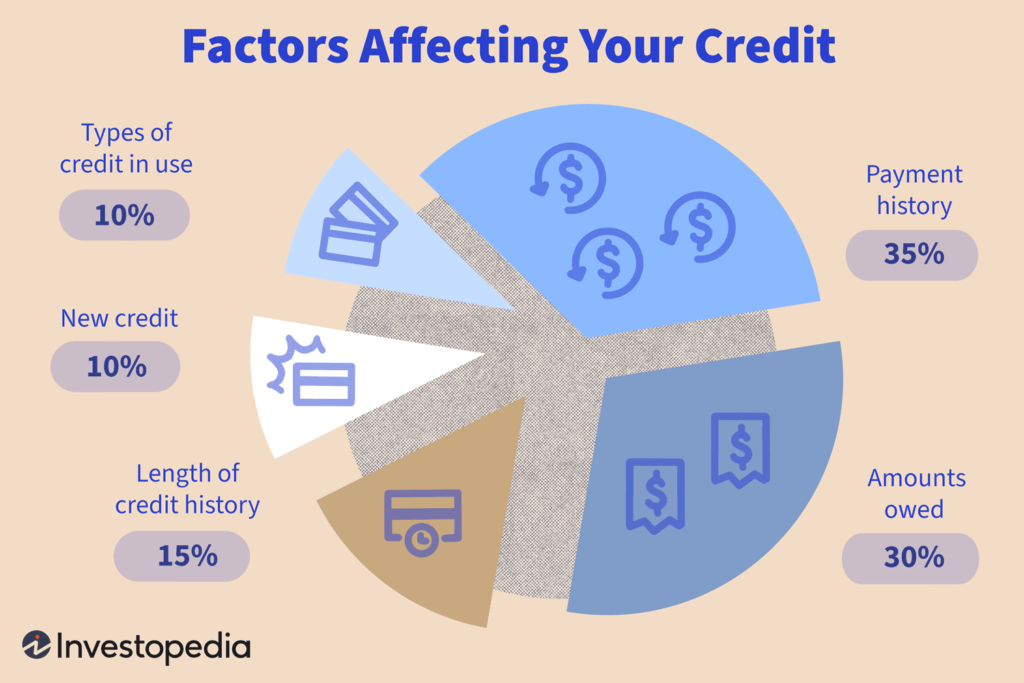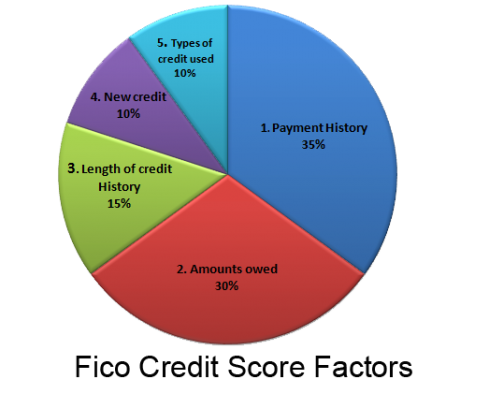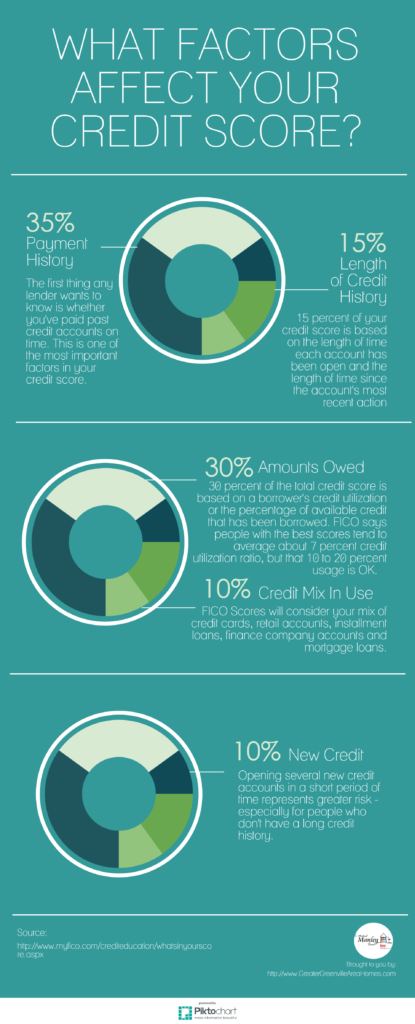In this article, we will explore the main factors that influence your credit score and provide strategies on how to address them. By understanding these factors and taking proactive steps, you can work towards improving your creditworthiness and securing better financial opportunities. Whether you want to apply for a loan, rent an apartment, or get a new credit card, having a good credit score is crucial. So, let’s dive into the main factors that impact your credit score and learn how you can take control of your financial future. When it comes to managing your finances, one key aspect that can have a significant impact on your financial health is your credit score. Your credit score is a numerical representation of your creditworthiness and is used by lenders to determine your eligibility for loans, credit cards, and other financial products. It is essential to understand the main factors that affect your credit score and take steps to address them. In this article, we will discuss the five main factors that can impact your credit score and provide tips on how you can address them.
Payment History
Your payment history is one of the most critical factors affecting your credit score. It accounts for approximately 35% of your overall score. Lenders want to see that you have a track record of making payments on time and in full. Late payments, defaults, and bankruptcies can have a severe negative impact on your credit score.
It is crucial to prioritize making all your payments on time to maintain a positive payment history. Set up reminders or automatic payments to ensure you never miss a due date. Even one missed or late payment can have a significant impact on your score. If you find yourself in a situation where you are unable to make a payment, reach out to your lender and explain the situation. They may be willing to work with you to create a payment plan or make alternative arrangements.
Credit Utilization
Credit utilization refers to the percentage of your available credit that you are currently using. It accounts for approximately 30% of your credit score. A high credit utilization ratio can indicate that you are relying too heavily on credit, which can be seen as a risk factor by lenders.
To maintain a healthy credit utilization ratio, it is recommended to keep your credit usage below 30% of your available credit limit. For example, if you have a credit card with a $10,000 limit, try to keep your balance below $3,000. If you have multiple credit cards or loans, try to distribute your credit utilization across them.
If you have a high credit utilization ratio, you can address it by paying down your debts and reducing your outstanding balances. Additionally, you can request a credit limit increase on your existing credit cards, which can help improve your credit utilization ratio.

This image is property of www.investopedia.com.
Length of Credit History
The length of your credit history accounts for approximately 15% of your credit score. Lenders prefer to see a long and established credit history as it provides them with more information about your borrowing and repayment behavior. A longer credit history can help build trust and improve your creditworthiness.
If you are new to credit or have a short credit history, there are steps you can take to address this. First, consider becoming an authorized user on someone else’s credit card. This allows their positive credit history to be reported on your credit report, helping you establish a longer credit history.
You can also consider opening a secured credit card or a credit-builder loan. These financial products are designed for individuals with limited or no credit history and can help you start building a positive credit history. Just ensure that you make all your payments on time and manage your credit responsibly.
Credit Mix
Credit mix refers to the different types of credit accounts you have, such as credit cards, loans, mortgages, etc. It accounts for approximately 10% of your credit score. Lenders like to see a diverse mix of credit types as it demonstrates your ability to handle different forms of credit responsibly.
If you currently only have one type of credit account, such as a credit card, you may want to consider diversifying your credit mix. This could involve applying for a small personal loan or a mortgage if you are in a position to do so responsibly. However, it is important to note that you should only take on additional credit if you need it and can manage it comfortably.

This image is property of beehive.org.
New Credit
New credit refers to any newly opened credit accounts or credit inquiries made by lenders when you apply for credit. It accounts for approximately 10% of your credit score. Opening several new credit accounts or making multiple credit inquiries within a short period can be seen as a sign of financial instability and can negatively impact your credit score.
When it comes to new credit, it is essential to be cautious and only apply for credit when you genuinely need it. Each time you apply for credit, it results in a hard inquiry on your credit report, which can lower your score slightly. Limiting the number of credit inquiries you make can help preserve your credit score.
It is also worth noting that there are two types of inquiries: hard inquiries and soft inquiries. Hard inquiries are made when you apply for credit and can impact your score. On the other hand, soft inquiries, such as checking your own credit score or receiving pre-approved credit offers, do not affect your credit score.
Addressing Credit Score Factors
Now that you understand the main factors that can affect your credit score, let’s discuss some steps you can take to address them and improve your credit score:
-
Regularly monitor your credit score: Keeping a close eye on your credit score can help you identify areas for improvement and track your progress.
-
Review your credit reports: Request free copies of your credit reports from the major credit bureaus and review them for any errors or inaccuracies. Dispute any errors you find to ensure your credit report is up to date.
-
Improve your payment history: Make it a priority to make all your payments on time. Set reminders or use automatic payments to avoid missing due dates.
-
Reduce your credit utilization: Pay down your debts and keep your credit utilization ratio below 30% of your available credit limit.
-
Build your credit history over time: Establishing a longer credit history takes time, but it is important to start building it as soon as possible. Become an authorized user, open a secured credit card, or take out a credit-builder loan to begin building a positive credit history.

This image is property of bt-wpstatic.freetls.fastly.net.
Conclusion
Understanding the factors that affect your credit score is crucial for taking control of your financial health. By addressing and managing these factors, you can improve your credit score, making it easier to qualify for loans, credit cards, and better interest rates. Remember to regularly monitor your credit score, review your credit reports, and take proactive steps to improve your payment history, credit utilization, credit history length, credit mix, and new credit applications. By taking these steps, you can improve your credit score and enhance your overall financial wellness.
